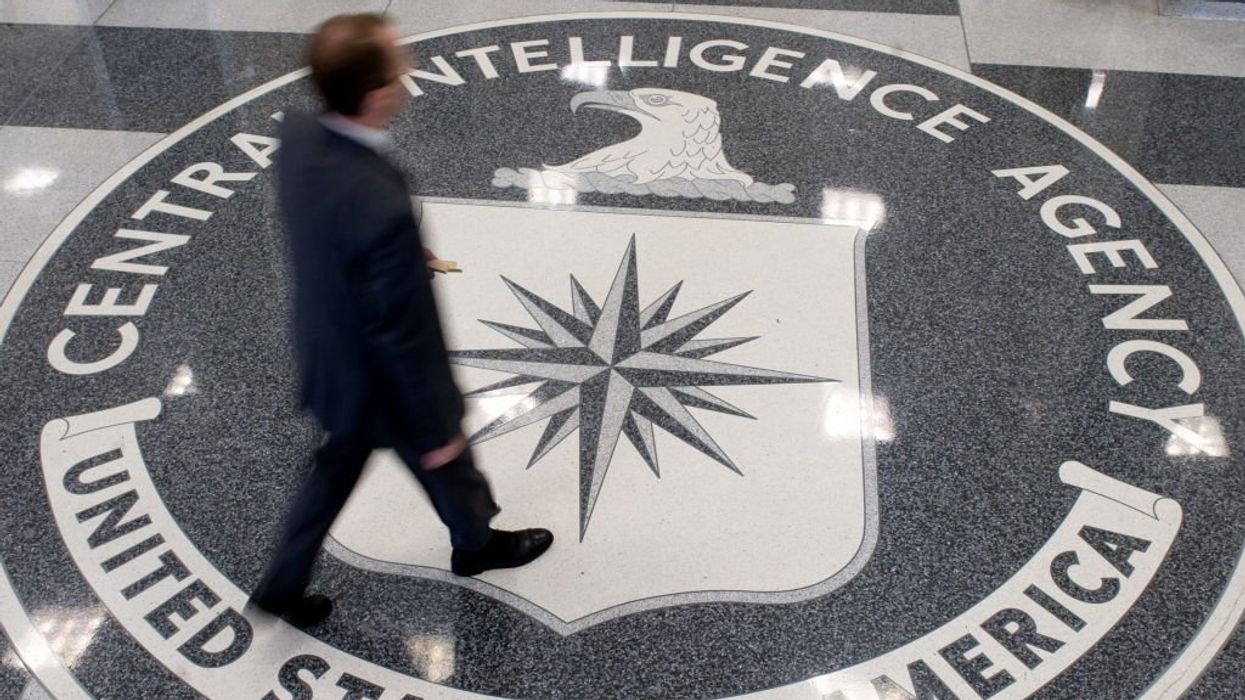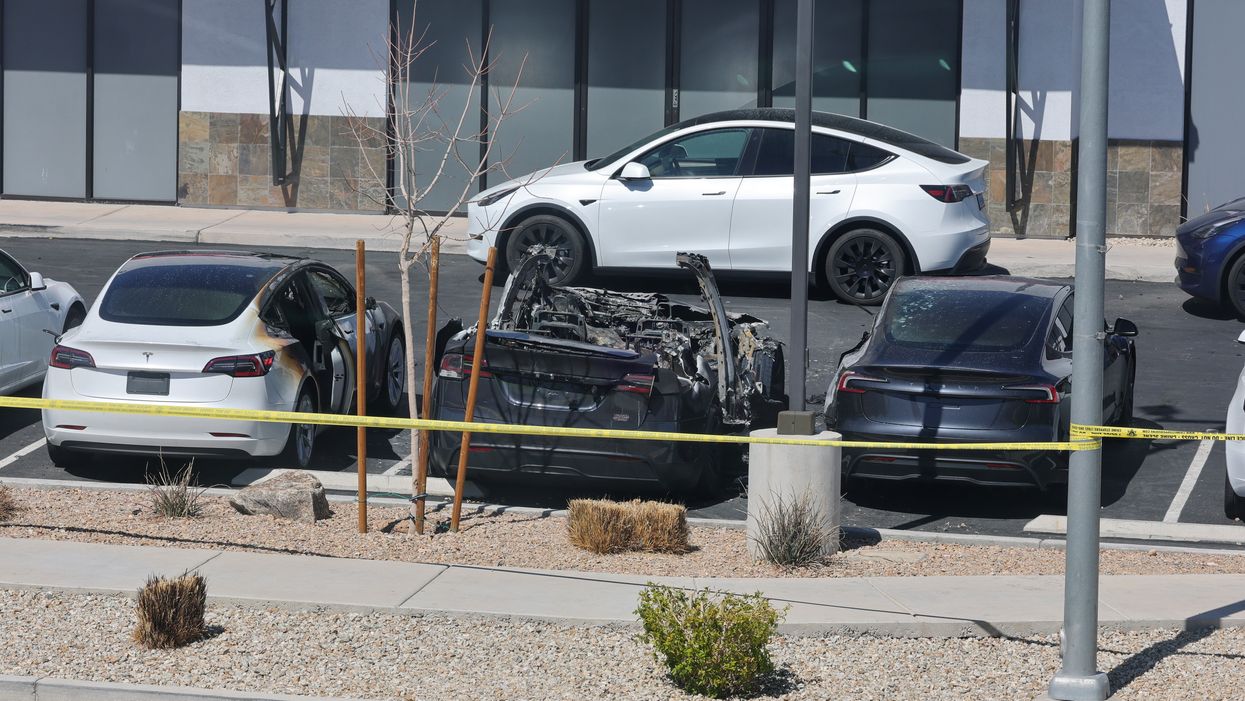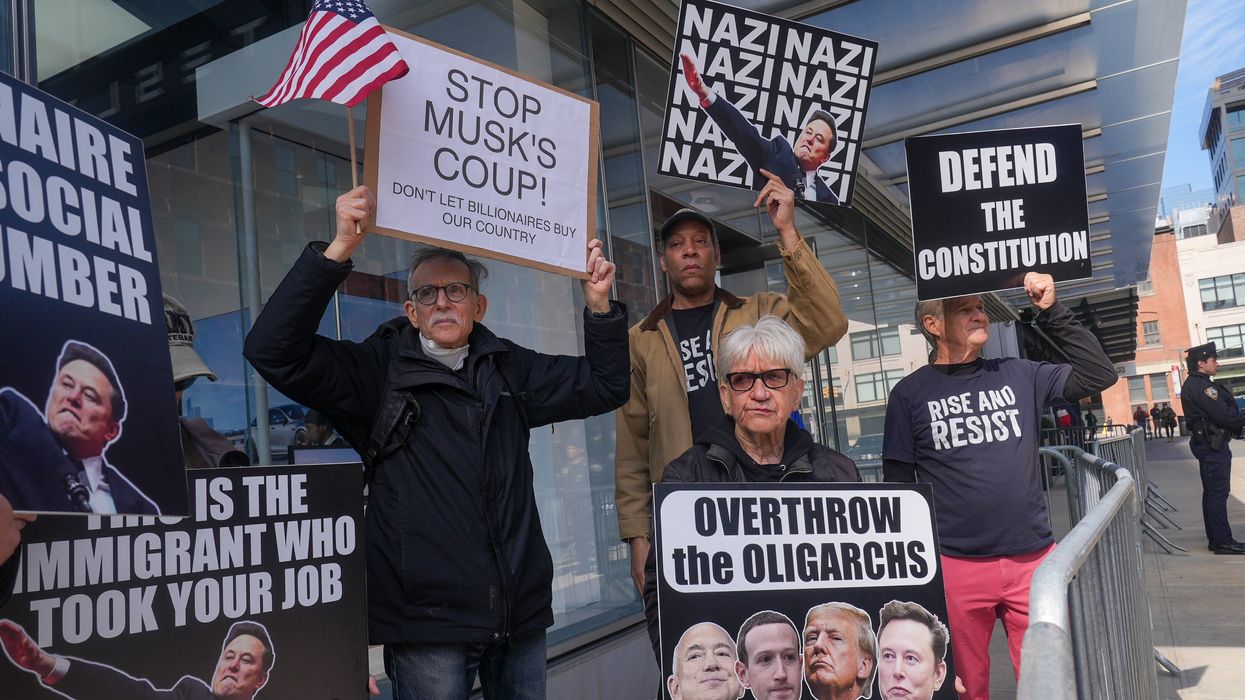The latest WikiLeaks dump included emails from a U.S. citizen's private email account. John David Podesta, Chairman of the 2016 Hillary Clinton presidential campaign and previous Chief of Staff to President Bill Clinton, was hacked and private correspondence released to the media which allegedly revealed inflammatory information.
In response, Senator Marco Rubio (R-FL) issued a statement:
I will not discuss any issue that has become public solely on the basis of WikiLeaks. As our intelligence agencies have said, these leaks are an effort by a foreign government to interfere with our electoral process, and I will not indulge it. Further, I want to warn my fellow Republicans who might want to capitalize politically on these leaks. Today it's the Democrats. Tomorrow, it could be us.
RELATED: Protect You and Your Family From Online Predators: Save Now!
It was an interesting position to take and one that launched an introspective conversation on Glenn's radio program Wednesday.
Read below or listen to the full segment for answers to these questions:
• What if these private emails had been stolen from you?
• Don't we have a right to be secure in our private papers ?
• Will everything be transparent in the future?
• Is this akin to stealing documents form Apple or IBM?
• Is it morally wrong to look at stolen documents?
Listen to this segment from The Glenn Beck Program:
Below is a rush transcript of this segment, it might contain errors:
GLENN: Let's talk a little bit about Marco Rubio and what he said about WikiLeaks.
STU: Statement to NBC.
He says, "I will not discuss any issue that has become public solely on the basis of WikiLeaks. As our intelligence agencies have said, these leaks are an effort by a foreign government to interfere with our electoral process, and I will not indulge it. Further, I want to warn my fellow Republicans who might want to capitalize politically on these leaks. Today it's the Democrats. Tomorrow, it could be us."
Now, of course, the Bush administration -- I mean, that was the WikiLeaks, the first thing they did, was attack the Bush administration. So it already has been the Republicans at some level.
And I think that part of the statement -- you know, look, today it's Democrats, tomorrow it could be us, appeals to probably most people. But I think it appeals least to me. That's certainly true.
I got to say though, I mean, it is an interesting point, in that, we know that -- or at least we think we know that this is coming from a foreign government. But even that part of it is less of the impact of that statement. To me, I think it's a good point in that it's probably just the wrong thing to do. Discussing these things -- and I understand this is not going to be popular. But discussing stolen documents, things that were stolen from private conversations, and discussing them as election issues, is probably just wrong to do. And I will admit this, that I -- it may just be I'm able to see this because I don't like either of the candidates. You know, like maybe if Ted Cruz was the guy and, you know, Ted Cruz was in a tight election battle, maybe I'd be all over this. I admit that I'm a weak enough idiot that I probably would -- you know, be down that road. I hope I would not. But, I mean --
GLENN: I don't think you would be.
STU: I hope not.
GLENN: Let me ask you this.
STU: It doesn't feel like -- and I think there's a distinction between this and, let's say, Edward Snowden, who is trying to be a whistle-blower on his government. And you can argue, whether he's as bad as well. And we've had that argument many times.
I think there's a difference there. This is just stolen from a foreign government and leaked -- and, again, none of this stuff -- it's like leaked internal questioning of issues. And I don't know, I mean, it feels like --
GLENN: Here's where I have a problem with the WikiLeaks things. We are discussing them, and we don't know what's true or not. We do know that one of the WikiLeaks emails that came out was changed by the government. Right? Remember you talked to us about that last week, that there was one email that was quoting an article that actually had an article in the original.
STU: Right. And they blamed the Democrats. In reality, they were quoting an article that was favorable to Republicans.
GLENN: Correct.
STU: They were basically saying -- I don't remember the exact issue. I think it was Benghazi-related. But it was basically like -- it was acting as if the Democrats behind closed doors knew Hillary was responsible for Benghazi, when in reality, they had sent an article that mentioned something about that --
GLENN: Right.
STU: -- internally to like discuss it.
GLENN: So we know at least one of them has been doctored. How do we know that, Stu? I don't remember the story. How do we know this?
STU: Oh, it was the author of the column saw the email exchange. And said, "Wait a minute. That's not their words. Those are my words. I wrote that."
GLENN: Okay.
STU: And, by the way, the author was critical of Republicans about their handling of Benghazi. It wasn't even a pro-Republican article that was -- it just had one paragraph that said, "Look, this is a fair issue to bring up," essentially, if I remember --
GLENN: So we know that one thing has been changed, out of how many thousands of documents. We don't know what's true and what's not coming from them.
What Edward Snowden did -- I'm really torn. Because every time I talk to anybody in the intelligence community that I respect, they say, "There's no way that he tried to go through the system. There's no way." And what I keep going back to is, if you try to go through the system, if you tried to stop it and nobody would listen, then I agree.
Now, I give him the benefit of the doubt because we know four whistle-blowers who tried to go through the system. I know three or five whistle-blowers -- I don't know them on a first-name basis that tried to show us the corruption in the Department of Homeland Security. And they are afraid for their jobs right now. Okay?
And that was involving a lawsuit that I was in. Those three or five whistle-blowers that provided us with information tried to do it the right way. They could not get any movement. And then the -- the top of the State Department started looking for them, and they were on a weasel hunt. Okay?
So I give Edward Snowden the benefit of the doubt that this was important, constitutional stuff, that our own government was violating. That's not the same as WikiLeaks. This is just a document dump. And you'll notice that they haven't documented -- they haven't document dumped anything on Russia. Nothing on enemies of ours. Only our allies and us. And trying to hurt us with our allies. I don't trust Julian Assange or WikiLeaks at all.
And for us to give them credibility is bad. Is really, really bad. Now, do I believe most of the stuff that has come through? Yeah, I do. I do. The latest is the thing on, you know, what Hillary is saying behind the scenes about how she wants to scrap Obamacare and start over. I believe that. Bill Clinton has said that. That it doesn't work. Obamacare doesn't work. Hillary would rather do her own Hillarycare and be the one who is the savior that fixed it. He got it. He did the hard work. He had it. Now let her fix it. I absolutely believe that. And that was one of the things that came out in WikiLeaks.
But that's not a national secret. That is not something that is constitutional. You know what I mean? It is just behind the scenes. And I don't like the fact that somebody that we can't check the -- the credibility on, we don't know what they're putting -- and they're putting thousands of documents out, I don't -- I'm not comfortable with this. It's not right.
STU: Yeah, I mean -- I just -- it's -- because my initial instinct -- I mean, we've talked about the WikiLeaks emails. I mean, I have a story I put in the prep today about -- which I think is interesting -- their -- the short list for the VPs for Hillary Clinton. And they have every single name on there. And they've broken it into categories.
And it's interesting, to look at this. I mean, the books that will be written about this election will be more detailed probably than any book about any previous election. Because there's so much information about what these guys were thinking at the times these decisions were made. But, I mean -- so my instinct was -- and plus, it's in the media. Everybody is talking about it. They're not hiding it --
GLENN: So what did you learn about it from that list?
STU: Am I not just violating -- it's interesting because they -- they played identity politics, without going into all the details. But like, they thought the same way you think Democrats would think about their VP choice. Here's a bunch of black people. Here's a bunch of women. Here's a bunch of people who -- you know, Hispanics. Here's a bunch of people who were in the military -- you know, like, they broke it into categories like that. It's not crazy.
PAT: And they ignored all that, with a white guy. What a bunch of racists. What a bunch of racists.
STU: Yeah, exactly. And they had a white guy category. Which, I mean, look --
PAT: Who else was on the white guy category?
STU: I can look at it.
PAT: Who was on the black guy category?
STU: Is it not -- am I not violating?
GLENN: Yes, I think you are.
STU: This is new information for me. I will say, I have not processed the Rubio thing. The Rubio thing -- and this goes back to the conversation we had with Steven Crowder.
The Rubio thing challenged what I thought. Honestly, I had not really considered it because we're in the heat of the election. And these things are out there. And I want to know the information. And it was there. And that was basically the amount of thought I put into it. And while I agree, they should -- the Russians should not be trying to influence our election process, I hadn't given it a thought of like, "Maybe we shouldn't even reporting on this stuff. I don't know." You could probably talk me into the opposite.
What's made me --
PAT: Worry about that tomorrow. What's in this one today?
STU: Right. Right. What's made me think today is that it just feels kind of morally wrong. I mean, like, these were stolen from these people. Like -- and while I don't like the people they were stolen from, they were stolen from these people. And, you know, I -- I don't know. I mean, while I don't want to stick my head in the sand and --
GLENN: You have a right to be secure in your papers and your person.
STU: Right? I mean, if this had happened to a candidate that I liked, I would be furious about it. And, you know, just because it's a candidate I don't like, you know, I'm supposed to embrace it? I don't know. It doesn't --
JEFFY: You can worry about it tomorrow and tell us about it today.
GLENN: This is espionage on not a government entity. This is a private corporation.
PAT: Uh-huh.
GLENN: The DNC and the RNC, they're private institutions. It's not a government institution. So nobody has a right -- that's like breaking into IBM and Apple and just releasing all their documents. You don't have a right to do that. You don't have a right.
STU: Right? I'm trying to challenge myself on this.
GLENN: And the only reason why, if you were pitted against -- if you were Microsoft versus Apple and somebody who hated Apple and was in favor of Microsoft broke in to Apple and you thought Steve Jobs was a great guy, and they released all the stuff that Steve Jobs was doing with the government, which they are -- the government, where he is -- he is -- he started his -- you know, his lobbying firm. He is wickedly involved in politics and deeply -- or was deeply involved in -- in making sure the laws worked to Apple's favor. He was putting himself in -- ahead of a line about getting a kidney transplant. That's not right. You can't do that.
But if we would have just -- if somebody would have gone in that was pro Microsoft and then dumped everything bad about Steve Jobs and Apple, would we be okay with that?
We might be because we would be like, "Eh, Steve Jobs, and that leftist, he finally gets his." Does that make it better? It doesn't.
STU: Right. Again, and this is your fault, Glenn, because you've been talking about principles all day.
But, I mean, you think about that, from a principled perspective, probably shouldn't -- probably shouldn't be. Now, look, it's going to be out there anyway. If you want it, you can get it, right?
GLENN: Yeah.
STU: But the question is, do we play into that? And I don't know. Maybe the answer to that is no. I don't know.
GLENN: Well, here's the problem of playing into it --
PAT: Or maybe the answer is yes.
GLENN: It could be. What do you think? What do you think?
PAT: I don't know. Honestly, until this moment, I haven't even considered it.
STU: Right. Right.
GLENN: Isn't that amazing that we haven't? That nobody has brought this up? This is a pretty big principle: You have a right to be secure in your papers, and it's a private institution.
PAT: These aren't papers. These are digital --
GLENN: Yeah, you have a right to your private thoughts and correspondence. You have a right to that.
PAT: Yeah, but they couldn't foresee email.
GLENN: Yeah, I know. I know.
JEFFY: Thank you.
GLENN: So how we are just going ahead and being fine with it -- we're only fine with it because we're on teams.
PAT: Yeah, I don't know.
GLENN: And we think they're all so support. Transparency won't hurt.
STU: There's really no one to call this out.
PAT: It's like stealing from a rich person. They're so rich, it won't matter. Well, just because we don't like them, doesn't mean that their privacy doesn't matter. That's still constitutional, and it's still a moral issue, and we should still abide by principles and values that we preach about all the time.
JEFFY: What if they have billions?
PAT: Well, if they have billions, you can probably take thousands --
GLENN: See, my feeling on this -- this is where I draw the line on Edward Snowden.
What Edward Snowden showed us was, they were violating the Constitution of the United States. They are breaking the law.
PAT: Yes.
GLENN: So it's a whistle-blower to me.
PAT: Yeah.
GLENN: Now, I'm torn on whether or not he did it the right way. I don't think he did. But the information is important because it broke the law.
PAT: Definitely.
GLENN: None of this is law-breaking.
STU: So there's stuff in there that could potentially --
GLENN: And release the law-breaking stuff, possibly. Possibly.
STU: Right.
GLENN: You would have a better chance of being on the moral right side, if it was law-breaking stuff. But just to release people's private emails is absolutely morally reprehensible.
STU: And the issue is. And, you know, I give Rubio credit because he's in a tough spot there. And I think he will tell you --
GLENN: That's not going to help him.
STU: Right. That's not going to help him. He is a guy who takes the world foreign affairs very seriously. So I think his motivation, I think, centrally, probably is that he just -- wait a minute. We're not going to let the Russians invade our election process. And that's a good reason.
GLENN: I got good news for you. It would be an act of war at any other time in our --
STU: Any other time. And I think right now, you have an issue of really neither side has -- has the ability to come out and call this out. One, Trump supporters and Republicans are -- want this information. I mean, there was a Republican congressman -- a Republican congressman, who came out and said, "Thank God for WikiLeaks."
I mean, think about this. This is the Russians hacking our election process, and a Republican congressman said, "Thank God for WikiLeaks."
On the other side, the Democrats have been doing the same thing forever. They used all of this information the same way when it benefited them. So they have no standing. Not to mention, the Clinton campaign has no incentive to draw attention to this. Right? The last thing they want to do is -- I mean, because it's a losing argument for them. Them coming out and saying, "Look, they shouldn't have those private emails."
It doesn't matter. It's a losing argument for them. They can say that, and it's probably true. But it's a losing argument.
So there's really no one with an incentive to come out and say this. And I hope that's -- again, this is why you come to this show, I hope. You come to this show because you want someone who -- you know, a show that's going to not care about those lines.
GLENN: So here's the real answer: The real answer should be that we make our own decision whether or not, and then we consistently apply it. Because everything is going to be transparent. In the years ahead, there's not going to be any secrets.
So do you look into people's private secrets or not? The answer is no, you don't.
JEFFY: You know, but that's the hope of government, right? That fishbowl mentality.
GLENN: No, I think the hope of the government is that you'll react at some point and say, "I want you to clamp down on this," and so they will. And then they have control, and they are the only ones that can look into people's secrets.
Featured Image: John Podesta, Clinton Campaign Chairman, walks to Democratic presidential nominee Hillary Clinton's Washington DC home October 5, 2016 in Washington, District of Columbia. (Photo Credit: BRENDAN SMIALOWSKI/AFP/Getty Images)






